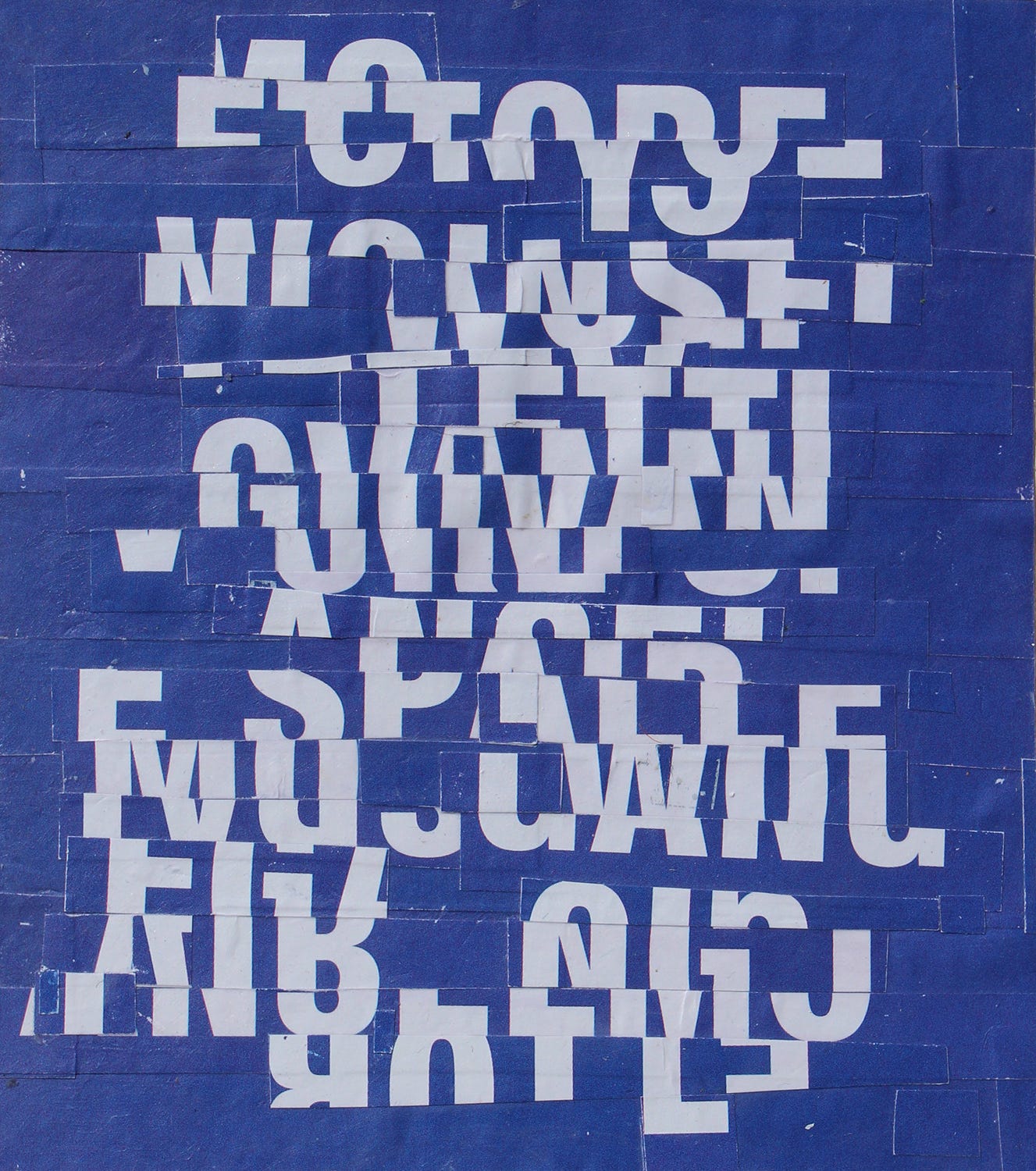Creativity as a Practice of Freedom
We like to speak of freedom as if it were a natural gift, a God given right, as if it simply falls into our hands the moment we are released from obligation. Yet the truth is that freedom requires cultivation. It is not given whole - it is earned through effort, discipline, and care.
For the artist, this paradox is especially sharp. To be granted time in the studio, uninterrupted, is a rare privilege. Yet those first days, weeks and months often feel less like liberation and more like drowning. With the imagined barriers gone, one can suddenly feel lost and listless and maybe even lonely. What do you do with all those hours? How do you order them? What happens when the list of projects you’ve carried for years—the backlog of “if only I had time” ideas - is exhausted? The blankness can be as paralyzing as the lack of time ever was.
This is where the practice of freedom begins. It asks of us more than impulse or inspiration. It demands that we build the bones: discipline, organization, foresight, and fortitude. It asks us to establish our basecamp - the rituals and routines that hold our days together, to develop strategies and logistics - the scaffolding that supports rather than strangles creativity. Freedom has a cost: the responsibility of structuring our own lives to fit our purpose at the sacrifice of other less important things.
But structure alone is not enough. There is also the inner work—the philosophy of creativity, the conscious understanding of where our work fits within history and context. An artist cannot thrive on production alone. We most develop a sense of purpose. We must understand the lineage we are stepping into, the conversations we are joining. That awareness deepens the practice, giving our freedom direction rather than leaving it scattered.
Equally essential are the attitudes of mind and heart. The studio is as much a mirror of our inner state as it is a workspace. Ego, doubt, resistance—all the invisible frictions that sap our energy - must be identified, confronted and re-trained. This is not a one-time battle but a daily practice: learning not to collapse under self-criticism, not to shrink from the blank canvas, not to waste hours in resistance and inner drama when those hours could be spent in creative play unfolding our inner world.
I know this from experience. It took me many years to overcome my own shortcomings of being chaotic, frustrated, impatient, and unorganized. Years to figure out exactly how to understand what I wanted to do and why I wanted to do it. To find the starting points, to know when to stop and move on, to recognize when I was avoiding ambitious projects out of fear of failure or lack of gumption. Each accomplishment, instead of being an endpoint, opened a door onto new areas where rigor was needed, new processes and new subtleties to refine. Even now, after forty-five years of practice, I am still experimenting, still seeking ways to improve both my craft and my way of looking at and doing things. A lifetime is not enough to reach the boundaries of possibility. There is always further to go—and that is exactly where you want to be, always pressing against your own envelope.
Over time, the routines of practice form confidence. What once felt impossible begins to feel natural. The morning arrives, and rather than dread or confusion, there is enthusiasm. The daily rituals—whether writing, sketching, cutting, or mixing paint—become doorways into readiness. We find ourselves not waiting for inspiration, but meeting it halfway, already at work.
This is the hidden truth of creative freedom: it is not the absence of limits, but the presence of well-chosen habits. Discipline, far from being the enemy of freedom, is its necessary companion. Rituals do not cage us; they steady us. Through them, we are able to stand each morning on the threshold of possibility with courage, clarity, and delight.
In the end, creativity as a practice of freedom is less about the sudden flight of inspiration and more about the daily return. It is a rhythm, a discipline, a way of being that transforms the burden of choice into the joy of practice.




Beautiful
Please take a look at mine
https://substack.com/@collapseofthewavefunction/note/p-167021101?r=5tpv59&utm_medium=ios&utm_source=notes-share-action
It seems like this practice of discipline is like a portal to that which needs to be addressed/ resolved/ unfolded in a way that allows a pre-ception to evolve into a concept that is ready to be expressed/born. It all starts with an idea or even pre-idea that becomes cohesive in reverse. Somehow that makes sense. Weird, eh?